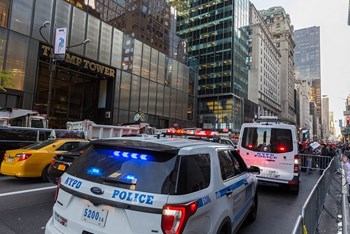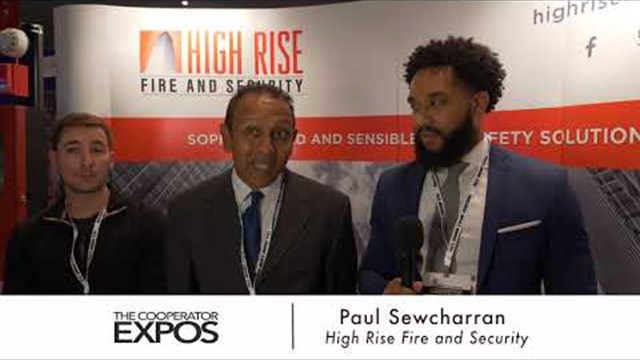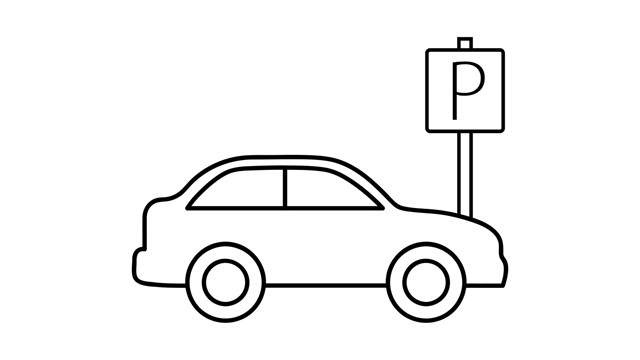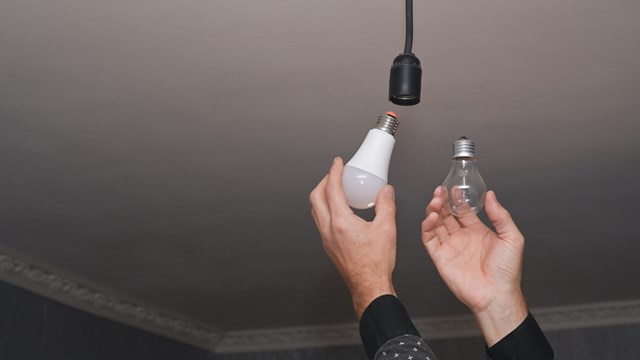
A fire at Trump Tower last April that killed one resident and brought up the issue of retrofitting sprinklers in older buildings has entered into the legal arena.
This past July, as reported by The Wall Street Journal, the Trump Tower condo board filed with Manhattan Surrogate's Court to compel relatives of Todd Brassner, owner of the condo where the fire took place, who later died as a result--or a public administrator of his estate--to do something about the fire-damaged apartment.
According to the board, the damage to Brassner’s unit had proven to be a hindrance to approximately a dozen fellow residents who will not be able to return to their homes until repairs are handled. In the filing, Beqir Ukaj, resident manager of the property, said that “The owners of those units cannot move back into their residences because of the acrid smoke smell emanating from the charred remains in Unit 50C, which is overwhelming, inescapable and unbearable.”
At the time of the article’s publication, no one had stepped up on Brassner's behalf, including his brother Howard. The latter declined to comment to the Journal.
“Once a fiduciary is appointed, repairs can immediately begin,” Thomas DeMicco, an attorney for the condo board, told the Journal.
The four-alarm fire broke out April 7 on the 50th floor of Trump Tower on Fifth Avenue in Manhattan. Brassner, a 67-year-old art collector and dealer, lived in the building since the mid-’90s. He reportedly suffered from “debilitating medical problems that made it difficult for him to function,” according to a 2016 bankruptcy filing. In a New York Times report, Brassner had wanted to move out of Trump Tower, said his friends, but was unable to sell his unit. The blaze was ruled accidental by fire marshals, citing interconnected power strips as the cause.
Following the blaze, much ado was made over the lack of sprinklers at Trump Tower. In 1999, then-Mayor Rudolph Giuliani signed legislation that required all new residential buildings with four units or more to have sprinklers in each unit and common hallway. This was a watered-down version of an original proposal that aimed to extend the requirements to all residential properties with as many units, regardless of age or size. That proposal was aggressively lobbied against by developers -- among them Donald Trump -- due to the additional expense per square-foot to an apartment’s cost.
As it now stands, older residential properties only need to have sprinklers installed should they undergo renovations that cost 50 percent or more of their building's value (Trump Tower was completed in 1983). New York City Councilman Robert Cornegy, who represents Bedford-Stuyvesant and northern Crown Heights in Brooklyn, announced in the wake of the fire that he plans to propose a bill that closes the age-of-building loophole, thus establishing sprinkler requirements to fall in line with the original intent of the proposal from 20 years ago.
At a press conference in April, Cornegy said: “It's time we bring the law up to date to protect New York citizens” and that developers and owners “are potentially putting the lives of thousands of New Yorkers in danger by not having the basic safety networks in place, like a sprinkler system.”
A request for an update as to the status of the proposed bill was not returned by the councilman's office as of this publication.
Mike Odenthal is a staff writer at The Cooperator.






Leave a Comment